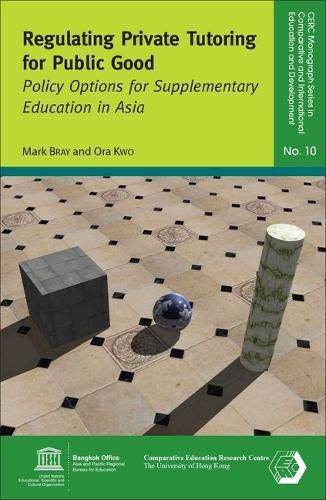Readings Newsletter
Become a Readings Member to make your shopping experience even easier.
Sign in or sign up for free!
You’re not far away from qualifying for FREE standard shipping within Australia
You’ve qualified for FREE standard shipping within Australia
The cart is loading…






Recent years have brought global expansion of private supplementary tutoring alongside regular school systems. This expansion has far-reaching implications for the nurturing of new generations, for social and economic development, and for the operation of school systems. Some dimensions are positive while other dimensions are problematic. Supplementary tutoring is especially visible in Asia. The formats of tutoring range from one-to-one provision to large classes. Some tutoring is provided by teachers and by specialist companies, while other tutoring is provided informally by university students and others. Using a comparative lens, this book examines possible government responses to the expansion of private supplementary tutoring. In general, the book suggests, the sector should be given more attention. The work shows wide diversity in the regulations introduced by governments in the Asian region. It notes not only that these governments can learn much from each other, but also that policy makers in other parts of the world can usefully look at patterns in Asia. The book also stresses the value of partnerships between governments, tutoring providers, schools, teachers’ unions, and other bodies.
$9.00 standard shipping within Australia
FREE standard shipping within Australia for orders over $100.00
Express & International shipping calculated at checkout
Recent years have brought global expansion of private supplementary tutoring alongside regular school systems. This expansion has far-reaching implications for the nurturing of new generations, for social and economic development, and for the operation of school systems. Some dimensions are positive while other dimensions are problematic. Supplementary tutoring is especially visible in Asia. The formats of tutoring range from one-to-one provision to large classes. Some tutoring is provided by teachers and by specialist companies, while other tutoring is provided informally by university students and others. Using a comparative lens, this book examines possible government responses to the expansion of private supplementary tutoring. In general, the book suggests, the sector should be given more attention. The work shows wide diversity in the regulations introduced by governments in the Asian region. It notes not only that these governments can learn much from each other, but also that policy makers in other parts of the world can usefully look at patterns in Asia. The book also stresses the value of partnerships between governments, tutoring providers, schools, teachers’ unions, and other bodies.